Audio
Apartheid, AI and Michelle Obama
Hear This by
Vision Australia3 seasons
3 May 2024
27 mins
From the Vision Australia library: a South African childhood, AI issues and an American First Lady.

Hear This is a weekly presentation from the Vision Australia Library service, for peoiple with blindness or low vision.
Host Frances Keyland brings you up to date with what’s on offer, with excerpts from audio readings, alongside reviews and Reader Recommends.
This episode includes stories of a South African childhood, AI issues and an American First Lady... and more!
00:09UU
Take a look.
00:24S1
Hello and welcome to Hear This. I'm Frances Keyland and you're listening to the Vision Australia Library radio show, where we talk about books and the Vision Australia collection. We've got a nice array today, including a reader recommendation, which is always welcome. So I do hope you enjoy the show. First up today let's hear, um, a reader recommended title. And thank you to the listener who sent through this recommendation for the book, Born a Crime: Stories from a South African Childhood. The compelling, inspiring, often comic coming of age story of Trevor Noah set during the twilight of apartheid and the tumultuous days of freedom that followed as host of the US hit show The Daily Show with Trevor Noah, he provides viewers around the globe with their nightly dose of biting satire.
But here Noah turns his focus inward, giving his listeners a deeply personal, heartfelt and humorous look at the world that shaped him. Noah was born a crime, son of a white Swiss father and a black mother. At a time when such a union was punishable by five years in prison. Living proof of his parents indiscretion, Trevor was kept mostly indoors for the first years of his life, bound by the extreme and often absurd measures his mother took to hide him from a government that could at any moment take him away. A collection of 18 personal stories, Born a crime, tells the story of a mischievous young boy growing into a restless young man as he struggles to find his place in a world where he was never supposed to exist. Born a crime is equally the story of that young man's fearless, rebellious, and fervently religious mother a woman determined to save her son from the cycle of poverty, violence and abuse that ultimately threatens her own life.
Whether subsisting on caterpillars for dinner during hard times, being thrown from a moving car during an attempted kidnapping, or just trying to survive the life and death pitfalls of dating in high school, Noah illuminates his curious world with incisive wit and unflinching honesty. His stories weave together to form a personal portrait of an unlikely childhood in a dangerous time, as moving and unforgettable as the very best memoirs and as funny as Noah's own hilarious stand up. Let's hear a sample of Born a Crime by Trevor Noah. It's narrated by the author Trevor Noah.
02:53S2
The genius of apartheid was convincing people who were the overwhelming majority to turn on each other. Apartheid is what it was. You separate people into groups and make them hate one another so you can run them all. At the time, black South Africans outnumbered white South Africans nearly 5 to 1. Yet they were divided into different tribes with different languages Zulu, Hausa, Tswana, Tsutsu, Venda, Ndebele, Tsonga, Beti and more. Long before apartheid existed, these tribal factions clashed and warred with one another. Then white rule used that animosity to divide and conquer. Those tribes and other non-whites were systematically classified into various groups and subgroups. Then these groups were given different levels of rights and privileges in order to keep them at odds. Perhaps the starkest of those divisions was between South Africa's two dominant tribes, the Zulu and the Class-A.
The Zulu man is known as the warrior. He is proud. He puts his head down and fights. When the colonial armies invaded, the Zulu charged into battle with nothing but spears and shields against men with guns. The Zulu was slaughtered by the thousands, but they never stopped fighting. The costs are, on the other hand, pride themselves on being the thinkers. My mother is Closser. Nelson Mandela was Class-A. The Class-A waged a long war against the white man as well. But after experiencing the futility of battle against a better armed foe, many Cosat chiefs took a more nimble approach. These white people are here, whether we like it or not, they said. Let's see what tools they possess that can be useful to us. Instead of being resistant to English, let us learn English. We'll understand what the white man is saying and we can force him to negotiate with us.
04:47S1
That was, Born a Crime by Trevor Noah. Trevor is spelt... [spells name]. And that book goes for eight hours and 50 minutes. And thank you so much for that recommendation. It's getting closer and closer to the 10th of May, in which, um, the Melbourne Writers Festival is having an in conversation with Toby Walsh. Um, and he's written a book called Machines Behaving Badly, which we have in the collection. So the event takes place on the 10th of May at between 6:00 and 7:00 in the evening. You can contact the library to book a seat to come in person. So join world leading artificial intelligence expert Toby Walsh as he examines the possibilities and perils of emerging AI technologies. From chat, GPT to facial recognition and self-driving cars. He'll be with Elizabeth McCarthy talking about this book, and it is such a hot topic. The gathering pace of artificial intelligence, including the rollout of ChatGPT, has stunned the world this past year, fueling dueling excitement and debate about its use.
So hear from author Toby Walsh for a discussion about the ethical considerations and unexpected consequences that these new technologies pose. It's free to attend. The conference centre here at Kooyong is wheelchair accessible and has an accessible bathroom and has a hearing loop, so please request hearing loop access on registration if it is required, and you can also register to view it live as it's streamed. So I thought I'd play a sample of Machines Behaving Badly, in which Professor Toby Walsh will explore issues such as Is Alexa racist? Can robots have rights? What happens if a self-driving car kills someone? What limitations should we put on the use of facial recognition? Among many other hot questions, let's hear a sample. It's narrated by Dennis Challenger.
06:55S3
You surely know what artificial intelligence is. After all, Hollywood has given you plenty of examples. Artificial intelligence is the terrifying T-800 robot played by Arnold Schwarzenegger in the Terminator movies. It is either the female humanoid robot in Ex Machina that deceives humans to enable it to escape from captivity. It is the Tyrell Corporation Nexus six replicant robot in Blade Runner, trying to save itself from being retired by Harrison Ford. My personal favorite is Hal 9000, the sentient computer in 2001 A Space Odyssey. Hal talks, plays chess, runs the space station, and has murderous intent. Hal voices one of the most famous lines ever said by a computer. I'm sorry, Dave, I'm afraid I can't do that. Why is it that the eye is always trying to kill us?
In reality, artificial intelligence is none of these conscious robots. We cannot yet build machines that match the intelligence of a two year old. We can, however, program computers to do narrow, focused tasks that humans need some sort of intelligence to solve, and that has profound consequences. If artificial intelligence is not the stuff of Hollywood movies, then what is it? Oddly enough, AI is already part of our lives. However, much of it is somewhat hidden from sight. Every time you ask Siri a question, you are using artificial intelligence.
08:54S1
And that was Machines Behaving Badly by Professor Toby Walsh. Toby is... [spells name]. And that book goes for nine hours and 45 minutes and it's produced by Vision Australia.
And congratulations to the producers of Michelle Obama's latest book, because they've just won a Grammy Award for the Best Audiobook of the year. Its title is The Light We Carry in the Light We Carry. Former first Lady Michelle Obama shares a practical wisdom and powerful strategies for staying hopeful and balanced in today's highly uncertain world. She considers the questions many of us wrestle with how do we build enduring and honest relationships? How can we discover strength and community inside our differences? What do we do when it all starts to feel like too much? Michelle Obama believes that we can all lean on a set of tools to help us better navigate, change, and remain steady with influx. The light we carry offers listeners a series of fresh stories and insightful reflections on change, challenge, and power, including her belief that when we light up for others, we can illuminate the richness and potential of the world around us, discovering deeper truths and new pathways for progress.
Drawing from her experiences as a mother, daughter, spouse, friend, and first lady, she shares the habits and principles she has developed to successfully overcome various obstacles the earned wisdom that helps her continue to become. With trademark humor, candor, and compassion. She also explores issues connected to race, gender, and visibility, encouraging listeners to work through fear, find strength in community, and live with boldness. The Light We Carry will inspire listeners to examine their own lives, identify their sources of gladness, and connect meaningfully in a turbulent world. Let's hear a sample of The Light We Carry by Michelle Obama, narrated by Michelle Obama.
11:00S4
Sometimes you recognise a tool only after it starts working for you, and sometimes it turns out the smallest of tools can help us to sort through the largest of feelings. I learned this a couple of years ago when I mail ordered myself some knitting needles, without quite realizing what I needed them for. This was during the first fraught weeks of the pandemic, and I was in our house in Washington, DC. I'd been online shopping in a scattershot way, laying in things like board games and art supplies on top of food and toilet paper. Unsure of how anything would go, fully and sheepishly aware that impulse shopping is a classic American response to uncertainty, I was still trying to wrap my head around the fact that, in what felt like an instant, we'd gone from normal life to a full scale global emergency.
I was still trying to wrap my head around the fact that hundreds of millions of people were suddenly and seriously in harm's way and that the safest, most helpful thing the rest of us could do at the time was to sit quietly at home. Day after day, I stared at the news struck by the acute unfairness of our world. It was embedded in the headlines, in the job losses, in the death counts, and in the neighborhoods where ambulances screamed loudest. I read articles about hospital workers who were scared to go home after their shifts, afraid they might infect their own families. I saw images of morgue trucks parked on city streets, concert venues being converted into field hospitals. We knew so little and feared so much.
12:59S1
And that was a sample of The Light We Carry by Michelle Obama. Uh, Michelle is... [spells name]. And that book goes for ten hours. There is also in the library, Michelle Obama's narrating of her book becoming, which was her autobiography. So that was released a couple of years ago, and that is also in the library and is, was a really, really popular book and an award winning autobiography at the time.
There's a lot happening in the world and around Australia. So the next book comes with a little bit of a warning as it deals with issues of domestic violence, sexual violence and the legal system, which can be traumatic in itself. The book is Eggshell Skull by Bri Lee. The author Bri Lee began her first day of work at the Queensland District Court as a bright eyed judges associate. Two years later, she was back as the complainant in her own case. This is the story of Bree's journey through the Australian legal system, first as the daughter of a policeman, then as a law student, and finally as a judge's associate in both metropolitan and regional Queensland, where justice can look very different, especially for women.
The injustice Bree witnessed, mourned and raged over every day finally forced her to confront her own personal history, one she'd vowed never to tell. And this is how, after years of struggle, she found herself on the other side of the courtroom telling her story. Let's hear a sample of Eggshell Skull by Bri Lee. It's narrated by Marissa, Barters Waters.
14:42S5
I know plenty of people hate cops. I'm young and blessed to be friends with lots of creative people, left wing political activists and older friends who remember Queensland under Premier Joh Bjelke-Petersen. When unions save both livelihoods and lives. I've met bad cops who misuse their power, and I know there are lazy cops who make life difficult. And of course, I wonder who guards the guards. But I can't think of cops without thinking of my dad. For most of my life, I've been blinded by anecdotal evidence full of love and sacrifice. The Carpino best was admired for his calm, nonviolent approach. The cop I know best launched me, squealing from his shoulders into sparkling pools on birthdays. He helped me grow a veggie garden and watered it every morning when I lost interest. He raised me on an addictively binary vision of right and wrong. His uniform was crisp. He got up early in the morning without an alarm clock. People in the neighbourhood called on him, asking for advice.
When he moved from patrol work to prosecution, he had to take a pay cut of about 20% because he was no longer in danger on a daily basis. But I remember sometimes he would notice cars following us home from school, and we'd have to double around dead end streets until they knew he'd seen them and tore off. Stranger danger was real. After he had spent a few years in prosecution, some rich barristers offered him a job at about double his wage. Mum and dad fought about it because the money would have made things a lot more comfortable at home. But neither of them wanted him to work for defense. I'll never forget my brother and me agreeing that our dad would never go dark side. He was our hero.
And that was Eggshell Skull by Bri Lee. Bri is spelt... [spells name]. We have a couple of other books by Bri Lee. One is called Beauty, in which she looks at the ideas of beauty and exploring our obsession with thinness, and asks how an intrinsically unattainable standard of physical perfection has become so crucial to so many. And what happens if that goal is impossible? That book is also narrated by Bri Lee, so that is called beauty. And there's also another book called Who Gets to Be Smart, written by Bri Lee. And I heard her interviewed by Richard Fidler about this book. Again, this is narrated by Bri Lee, and it all started in 2018 when she had a brilliant young friend, Damien, who was named a Rhodes Scholar, and she went to visit him at Oxford and and is fascinated as she learns the truth behind what Virginia Woolf described almost a century earlier, as in quotes, the stream of gold and silver that flows through elite institutions and dictates decisions about who deserves to be educated there.
And the book is the culmination of two years of conversation and investigations on who gets to be smart interrogating, interrogating the adage knowledge is power and calling institutional prejudice to account. So that is who gets to be smart. Let's take a little break from some quite heavy topics there today and move on to some fiction. Happy birthday this week. To Ian Rankin, who is most famous, the Scottish author most famous for the John Rebus books that started back in the 80s and are still going strong. So I thought I'd take a look at the very first book that Ian Rankin published in the John Rebus series. It's called Knots and Crosses. Once a pariah in the elite SAS, now an Edinburgh policeman, John Rebus spends his time evading his memories and right now ignoring a series of crank letters as murders occur under his nose, he realizes he can no longer ignore the killer's presence. Let's hear a sample of Ian Rankin's Knots and Crosses. It's narrated by Crawford Logan.
19:03S6
On the steps of the Great London Road police station in Edinburgh. John Rebus lit his last legitimate cigarette of the day before pushing open the imposing door and stepping inside. The station was old, its floor dark and marbled. It had about it the fading grandeur of a dead aristocracy. It had character. Rebus waved to the duty sergeant, who was tearing old pictures from the noticeboard and pinning up new ones in their place. He climbed the great curving staircase to his office. Campbell was just leaving. Hello, John. MacGregor Campbell, a detective sergeant like Rebus, was donning coat and hat. What's the word, Mac? Is it going to be a busy night? Rebus began checking the messages on his desk. I don't know about that, John, but I can tell you that it's been pandemonium in here today.
There's a letter there for you from the man himself. Oh, yes. Reba seemed preoccupied with another letter which he had just opened. Uh, yes, John. Brace yourself. I think you're going to be transferred to that abduction case. Good luck to you. Well, I'm off to the pub. I want to catch the boxing on the BBC. Uh, should be in time. Campbell checked his watch. Yes. Plenty of time. There's anything wrong, John? Rebus waved the now empty envelope at him. Who brought this in, Mac. I haven't the faintest. John. What is it? Another crank letter. Oh, yes. Campbell sidled over to Rebus's shoulder. He examined the typed note. And it looks like the same bloke, doesn't it? Clever of you to notice that, Mac, seeing as it's the exact same message. And what about the string? Oh, it's here to. Rebus lifted a small piece of string from his desk. There was a simple knot tied in its middle.
21:08S1
And that was a sample of Knots and Crosses by Ian Rankin, the very first John Rebus book, published back in 1987. So before a lot of technology was around. So you've got a hard boiled cop there, solving the crimes the old fashioned way, but also in his own very... maverick way. And I think John Rebus is one of the most loved of those maverick misfit detectives. And the books are continuing. In 2022, Rankin signed a deal with publisher Orion to write two new John Rebus novels. There are 24 books altogether in the Rebus series, and there are 23 in the Vision Australia library, so we're almost up to date. There are other standalone books as well. By Ian Rankin in the collection. Ian is [spells name] and Noughts and Crosses is a short one. It only goes for 6.5 hours.
And now to the 2023 Booker Prize winning novel profit song by Paul Lynch. On a dark, wet evening in Dublin, scientist and mother of four Eilish Stack answers her front door to find the knsrb on her doorstep. Two officers from Ireland's newly formed secret police are here to interrogate her husband, a trade unionist. Ireland is falling apart. The country is in the grip of a government turning toward tyranny and when her husband disappears, Eilish finds herself caught within the nightmare logic of a society that is quickly unravelling. How far will she go to save her family? And what or who is she willing to leave behind? Let's hear a sample of Our Profit song by Paul Lynch. It's narrated by Gerry O'Brien.
23:01S7
The night has come and she has not heard the knocking. Standing at the window, looking out onto the garden. How the dark gathers without sound. The cherry trees. It gathers the last of the leaves. And the leaves. Do not resist the dark. But accept the dark and whisper. Tired now, the day almost behind her. All that still has to be done before bed. And the children settled in the living room. This feeling of rest for a moment by the glass, watching the darkening garden, and the wish to be at one with this darkness, to step outside and lie down with it, to lie with the fallen leaves, and let the night pass over to wake. Then with the dawn and rise renewed with the morning come.
But the knocking. She hears it pass into thought, the sharp, insistent rapping each knock possessed so fully of the knocker she begins to frown. Then Bailey, too, was knocking on the glass door to the kitchen. He calls out to her, ma'am. Pointing to the hallway without lifting his eyes from the screen. Eilish finds her body moving towards the hall with the baby in her arms. She opens the front door and two men are standing before the porch, glass, almost faceless in the dark. She turns on the porch light and the men are known in an instant from how they are stood the night cold air spiring, it seems as she slides open the patio door. The suburban quiet, the rain falling almost unspoken, onto Saint Lawrence Street upon the black car parked in front of the house. How the men seem to carry the feeling of the night. She watches them from within, her own protective feeling.
The young man on the left is asking if her husband is home, and there is something in the way he looks at her, the remote yet scrutinizing eyes that make it seem as though he is trying to seize hold of something within her. In a blink, she has sought up and down the street, seeing a lone walker with a dog under an umbrella. The willows nodding to the rain. The strobing of a large TV screen in the Sajak's house across the street.
25:04S1
So that was a sample of prophet song by Paul Lynch. Paul is spelt [spells name], and that book goes for 8.5 hours. I seem to have a lot of Irish authors on the show lately, and Ireland has a wonderful reputation for really nurturing its authors. And when a lot of the arts communities and writers communities are suffering from cuts and a lack funding, Ireland seems to stand out as a bit of a beacon for the way it treats its writers. And that was Prophet Song, winner of the 2023 Booker Prize. I'm just skimming Wikipedia here. Lynch stated that one of the main inspirations for the book was the Syrian Civil War and the ensuing refugee crisis, and the West's indifference to the plight of refugees, and he's also cited the German author Hermann Hesse's work as an inspiration to write his first dystopian novel. Lynch is the sixth Irish writer to win a Booker Prize.
Thank you for joining us today. My name is Frances Kelland and you've been listening to Vision Australia Radio and the library radio show Vision Australia Library. If you would like to join the library, if you've got any questions you would like to know about how to join, what to do, what sort of books? There's over 40,000 books in the collection, or there's your daily newspapers as well that you can get as audio. It's really worthwhile to give a ring if you're feeling a little bit out of touch with what's happening in the world of print. So call the library on 1300 654 656. That's one 306 54656. Or you can email a library@visionaustralia.org - that's library at Vision Australia - dot - org.
Also, last week I started to mention that some of the audio books, if they're commercially produced, are often available from your local library. And I wondered whether this information was helpful for people, whether or not they'd like to know if something is available for free from other libraries in audio, not just necessarily ours. So I'd just like to know if that's useful for people. Um, so please also give a call or email library at Vision Australia. Org or call them and I hope you have a lovely week and we'll be back next week with more Hear This.
Continue listening

On Hear This, latest books in the Vision Australia library. This edition, award-winning Oz fiction.
Australian fiction
Hear This by Vision Australia
4/8/2023
•28 mins
Audio

Books from the Vision Australia library - this episode featuring memoirs and family histories.
Family histories
Hear This by Vision Australia
11/8/2023
•27 mins
Audio

This edition: Michael Parkinson remembered and an assortment of latest books from the Vision Australia library.
Vale Michael Parkinson
Hear This by Vision Australia
18/8/2023
•26 mins
Audio

Hear This reviews latest books from Vision Australia library - this edition starting with two Booker Prize aspirants.
Booker Prize hopefuls
Hear This by Vision Australia
25/8/2023
•27 mins
Audio

Hear This interviews Tracey Chevalier, author of Girl with a Pearl Earring.
Girl with a Pearl Earring
Hear This by Vision Australia
8/9/2023
•28 mins
Audio

Hear This samples a variety of audio books from the Vision Australia library.
Top picks from audio books
Hear This by Vision Australia
15/9/2023
•28 mins
Audio

Events and activities at Vision Australia library - and latest picks from its books.
Community engagement
Hear This by Vision Australia
22/9/2023
•27 mins
Audio

This edition of Hear This from the Vision Australia library opens with a discussion of banned books.
Banned books
Hear This by Vision Australia
6/10/2023
•28 mins
Audio

Hear This features latest books and events at the Vision Australia library.
Latest events and books
Hear This by Vision Australia
13/10/2023
•27 mins
Audio

Latest books from the Vision Australia library - including childhood tales and a John Grisham thriller.
Childhood tales and a Grisham thriller
Hear This by Vision Australia
20/10/2023
•28 mins
Audio

Latest books from the Vision Australia library - including a novel by Australian Sam Drummond.
Oz writer Sam Drummond
Hear This by Vision Australia
3/11/2023
•27 mins
Audio

Books from the Vision Australia library - including a memoir by a friend of Anne Frank.
Anne Frank's friend
Hear This by Vision Australia
10/11/2023
•28 mins
Audio

Book reviews and excerpts from Vision Australia library - including a wartime struggle for survival.
Survival in wartime
Hear This by Vision Australia
24 November 2023
•27 mins
Audio

A special seasonal edition reviews Christmas murder stories available from Vision Australia library.
Yuletide Homicide
Hear This by Vision Australia
8 December 2023
•28 mins
Audio

Veteran talking book reader Tony Porter reviews his many voices.
The many voices of Tony Porter
Hear This by Vision Australia
5 January 2024
•27 mins
Audio

What's new in Vision Australia library of Braille and audio books - including new Australian works.
New Australian books
Hear This by Vision Australia
12 January 2024
•28 mins
Audio
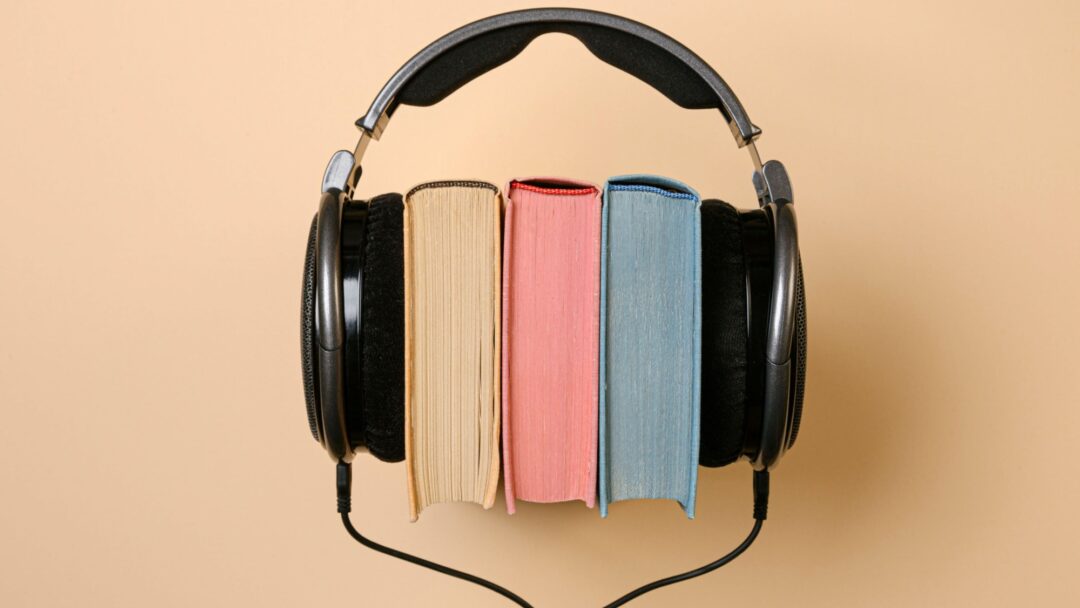
Vision Australia librarian talks of coming events and latest books for people with blindness and low vision.
Coming events and new books
Hear This by Vision Australia
26 January 2024
•28 mins
Audio

Review of books from the Vision Australia library - from a broad international range.
Books from Japan, US, Australia and Sweden
Hear This by Vision Australia
2 February 2024
•27 mins
Audio

New books in the Vision Australia library - from E.L.Doctorow to Alan Bennett.
Reasons Not to Worry, Wild Things... and Alan Bennett
Hear This by Vision Australia
9 February 2024
•28 mins
Audio

Latest events and books from Vision Australia Library, featuring its Community Engagement Co-ordinator.
Vision Library latest with Leeanne
Hear This by Vision Australia
16 February 2024
•28 mins
Audio

Features Jamie Kelly of Vision Australia Library, updating us on its website catalogue. And other new books.
Vision Australia library online, and Jelena Dokic
Hear This by Vision Australia
23 February 2024
•29 mins
Audio

New books in the Vision Australia Library - in this edition, books about paintings.
Books about paintings
Hear This by Vision Australia
1 March 2024
•26 mins
Audio

From the Vision Australia Library, women's memoirs on International Women's Day.
Women's memoirs on IWD
Hear This by Vision Australia
8 March 2024
•28 mins
Audio

Coming events and books at Vision Australia Library for people with blindness or low vision.
Coming events at Vision Library - and a Kerouac classic
Hear This by Vision Australia
15 March 2024
•29 mins
Audio

Latest books from Vision Australia Library - this week, some top Oz and worldwide novels.
Top Oz and world novels
Hear This by Vision Australia
29 March 2024
Audio

Coming events at Vision Australia Library in connection with the Melbourne Writers' Festival.
Melbourne Writers' Festival
Hear This by Vision Australia
5 April 2024
•28 mins
Audio
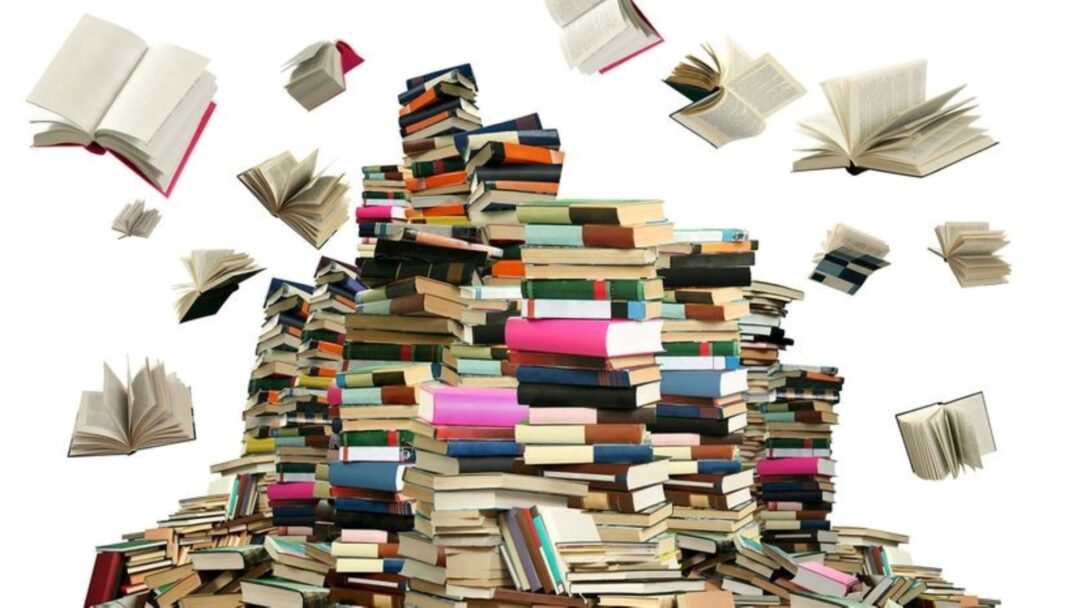
Coming events and new books at the Vision Australia Library for blind and low vision people.
Event update and more new books
Hear This by Vision Australia
12 April 2024
•29 mins
Audio

How printed works are brought to life as audio books in the Vision Australia Library.
Audio book narrators
Hear This by Vision Australia
19 April 2024
•28 mins
Audio

ANZAC Day edition of this series from the Vision Australia library for people with blindness or low vision.
ANZAC sniper
Hear This by Vision Australia
26 April 2024
•28 mins
Audio

From the Vision Australia library: a South African childhood, AI issues and an American First Lady.
Apartheid, AI and Michelle Obama
Hear This by Vision Australia
3 May 2024
•27 mins
Audio

Forthcoming Vision Library events including those connected with the Melbourne Writers' Festival.
Melbourne Writers' Festival and Vision Library events
Hear This by Vision Australia
10 May 2024
•28 mins
Audio

Murder mystery novels available from the Vision Australia library are reviewed and sampled.
Murder mysteries
Hear This by Vision Australia
24 May 2024
•27 mins
Audio

Celebrating National Reconciliation Week with books from Vision Australia Library... plus some user favourites.
Reconciliation Week and Reader Recommends
Hear This by Vision Australia
31 May 2024
•27 mins
Audio
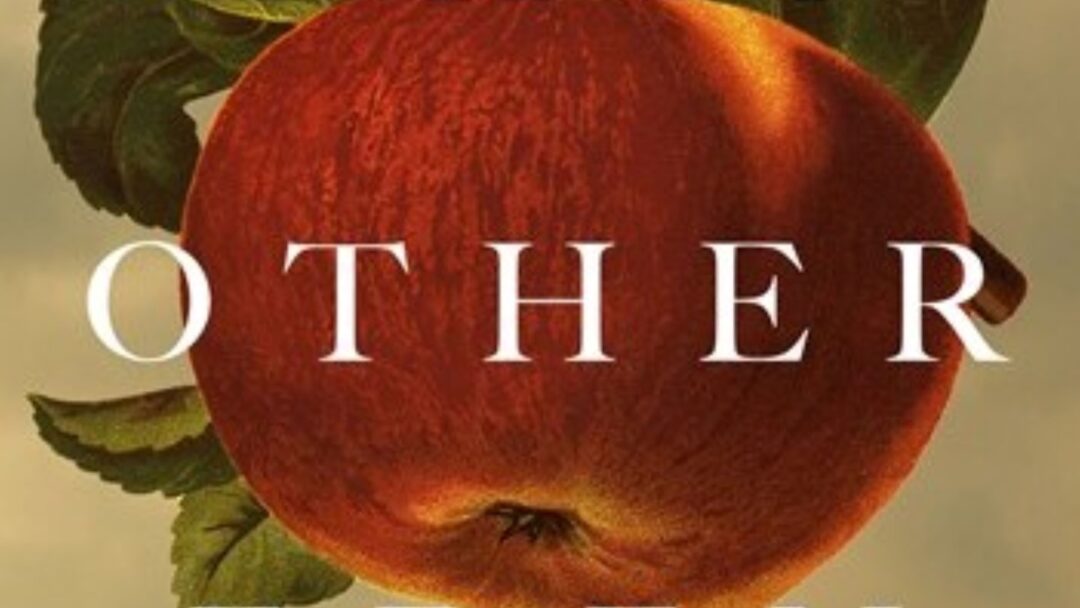
Reader Recommends and crime fiction from the Vision Australia library for blind and low vision people.
This Other Eden... and some other readin'!
Hear This by Vision Australia
7 June 2024
•29 mins
Audio

Vision Library's coming community events and latest books for people with blindness or low vision.
Coming events and latest books
Hear This by Vision Australia
14 June 2024
•29 mins
Audio

Books in Vision Australia library for people with impaired vision - this time on the theme of Darkness.
Darkness
Hear This by Vision Australia
21 June 2024
•29 mins
Audio

New books in Vision Library including the Wikileaks founder's autobiography.
Julian Assange - by the man himself
Hear This by Vision Australia
28 June 2024
•29 mins
Audio

Community events soon to happen at Vision Australia Library for people with blindness and low vision.
Coming events at Vision Australia Library
Hear This by Vision Australia
5 July 2024
•28 mins
Audio

Two well-known authors open the latest look at new publications in the Vision Australia Library.
Hilary Mantel, Bret Easton Ellis and more
Hear This by Vision Australia
19 July 2024
•27 mins
Audio

Vision Library series, this episode features new Australian crime novels written by women.
Australian sisters in crime
Hear This by Vision Australia
26 July 2024
•28 mins
Audio

Latest publications in the Vision Library, starting with a biography of John Farnham.
He's the Voice
Hear This by Vision Australia
2 August 2024
•27 mins
Audio

Latest reviews and readings from publications in the Vision Library for people with print disabilities.
Race, history and Black Ducks
Hear This by Vision Australia
9 August
•28 mins
Audio

Books from Vision Library reviewed include a Julie Andrews memoir, Guardian newspaper picks and more.
Julie remembers and The Guardian recommends
Hear This by Vision Australia
30 August 2024
•27 mins
Audio

An Australian author discusses her works, plus reviews of other books in the Vision Library.
Jane Rawson - author
Hear This by Vision Australia
6 September 2024
•28 mins
Audio

Update on forthcoming events and available publications at the Vision Australia Library.
What's On at Vision Australia Library
Hear This by Vision Australia
13 September 2024
•27 mins
Audio

Accessible Vision Library books reviewed, including murder mysteries and award nominees.
Mysteries and prize contenders
Hear This by Vision Australia
20 September
•27 mins
Audio

Reviews and events at Vision Australia Library to mark World Sight Day, October 10.
World Sight Day and Barbra Streisand
Hear This by Vision Australia
4 October 2024
•28 mins
Audio

What's on in the Vision Library, and the works of Ira Levin and Han Kang.
Library events, Ira Levin and Han Kang
Hear This by Vision Australia
11 October 2024
•28 mins
Audio
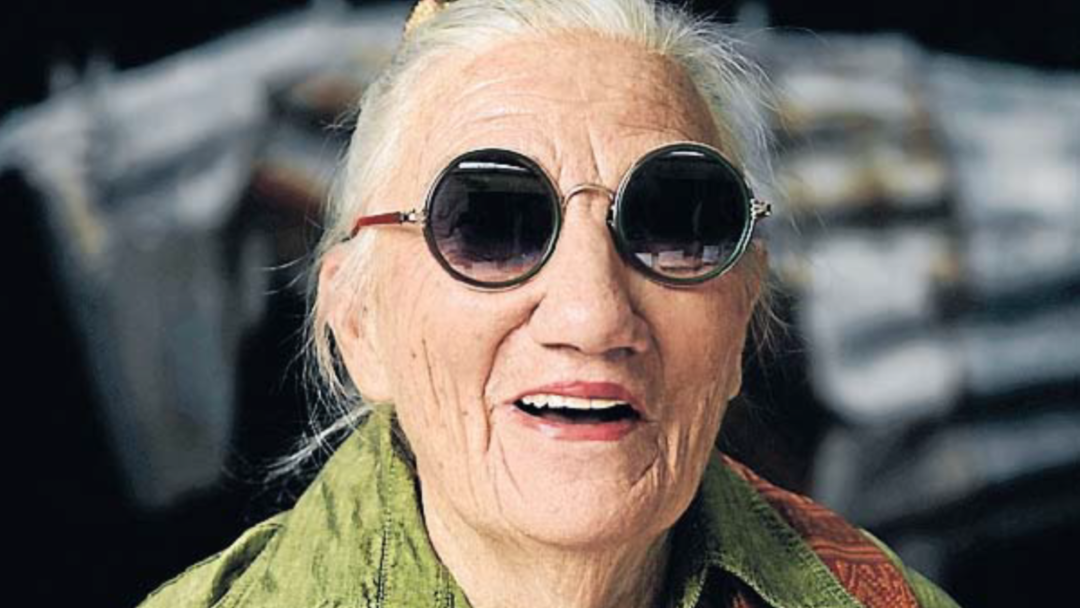
Vision Library publications reviewed - opening with some tributes to writers passed.
Tributes, and more
Hear This by Vision Australia
18 October 2024
•28 mins
Audio

Reviews and readings from Australian, British and US books in the Vision Australia Library.
Tomorrow, Questions, Mistresses and Murder
Hear This by Vision Australia
25 October 2024
•28 mins
Audio

Reviews and readings from books available in the Vision Australia Library.
From Australian thrillers to the US and South Africa
Hear This by Vision Australia
1 November 2024
•28 mins
Audio

A wide range of books in the Vision Australia Library are reviewed and sampled.
Leonard Cohen, ghosts and Broken Hill
Hear This by Vision Australia
8 November 2024
•28 mins
Audio

Events and publications at Vision Australia Library for people with blindness or low vision.
Vision Library: what's in and what's on
Hear This by Vision Australia
15 November 2024
•28 mins
Audio

Interview with an award-winning author about her life and work... plus more publications in the Vision Australia Library.
Jacqueline Bublitz
Hear This by Vision Australia
22 November 2024
•28 mins
Audio
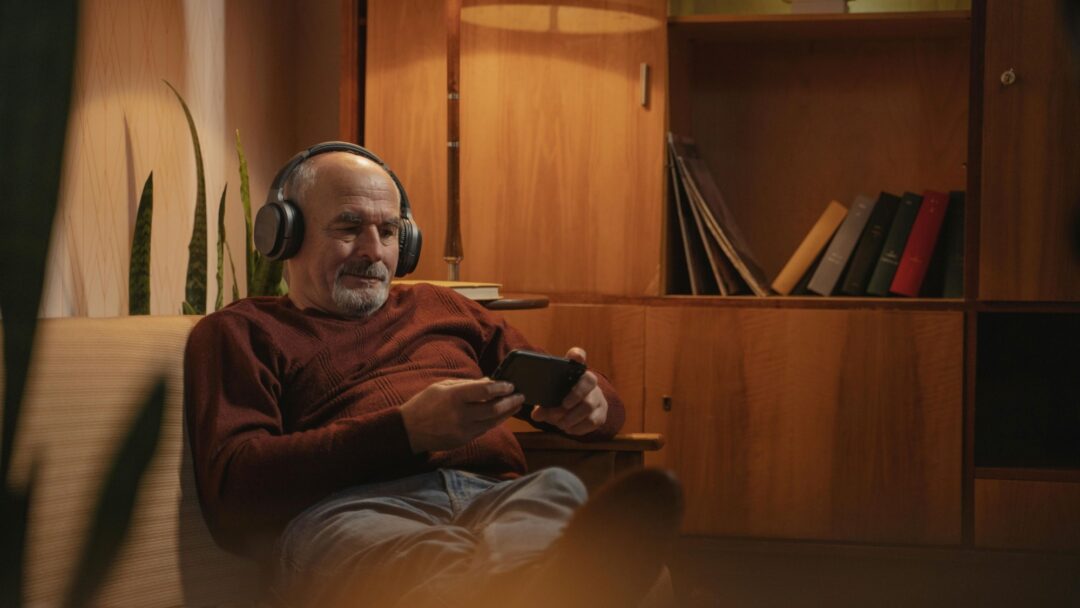
Vision Australia Library for people with vision impairment updates its coming events and latest publications.
Coming soon to the Vision Library
Hear This by Vision Australia
13 December 2024
•28 mins
Audio

Christmas-themed books in the Vision Australia Library for people with vision impairment.
Christmas offerings
Hear This by Vision Australia
20 December 2024
•28 mins
Audio

New books for 2025, fiction and non-fiction - vale Leunig!
Fiction and non-fiction for the New Year
Hear This by Vision Australia
3 January 2025
•27 mins
Audio

Reviews of varied books from the Vision Library - some centring on radio stations or radio plays.
Radio drama
Hear This by Vision Australia
10 January 2025
•29 mins
Audio

What's On at Vision Australia Library - and latest publications accessible to people with blindness and low vision.
Coming events in 2025 - and latest publications
Hear This by Vision Australia
24 January 2025
•28 mins
Audio

Writings on Marianne Faithfull and award-contending works in the Vision Australia Library are reviewed.
Vale Marianne... and award-nominated books
Hear This by Vision Australia
31 January 2025
•28 mins
Audio

Special guest highlights interesting events in libraries around the country... and some new books.
What's new in libraries around Australia
Hear This by Vision Australia
7 February 2025
•27 mins
Audio

Accessible publications chosen for February 14: Library Lovers' Day, Valentines Day and World Radio Day.
Library Lovers' Day
Hear This by Vision Australia
14 February 2025
•29 mins
Audio

An update on Vision Australia Library's coming events and latest blind-accessible books.
Coming events and new books
Hear This by Vision Australia
25 February 2025
•29 mins
Audio

Reviews of accessible books including a John Steinbeck classic, and news of a forthcoming writers' festival.
Brimbank and Steinbeck
Hear This by Vision Australia
28 February 2025
•29 mins
Audio

Coming courses and other events at Vision Australia Library - and latest accessible books.
Courses, events and latest publications
Hear This by Vision Australia
14 March 2025
•28 mins
Audio

Special with interviews and readings at a writers' festival and writing competition in Melbourne.
Brimbank Writers' and Readers' Festival and Micro-fiction Competition
Hear This by Vision Australia
21 March 2025
•30 mins
Audio

An interview with an Australian woman writer and reviewer, about her favourite female authors.
Women authors with Stella Glorie
Hear This by Vision Australia
28 March 2025
•29 mins
Audio

Reviews and excerpts from accessible works in the Vision Australia Library, starting with a new Australian novel.
Reader recommends a Deal
Hear This by Vision Australia
4 April 2025
•27 mins
Audio

Vision Australia Library brings news of accessible events at the forthcoming Melbourne Writers' Festival.
Melbourne Writers' Festival 2025
Hear This by
11 April 2025
Audio

Vision Australia Library pays tribute to the late Australian author of the Miss Fisher mysteries and more.
Vale Kerry Greenwood
Hear This by Vision Australia
18 April 2025
•28 mins
Audio

ANZAC Day special featuring reviews and short readings from books about the First World War.
Reading about World War 1
Hear This by Vision Australia
25 April 2025
•28 mins
Audio

Reviews and readings of user favourites in Vision Library - including an Antarctic adventure.
Reader recommended
Hear This by Vision Australia
2 May 2025
•28 mins
Audio

What's accessible in the Vision Australia Library - including new books by Kate Grenville and Eric Idle.
Always look on the bright side of... time and place
Hear This by Vision Australia
9 May 2025
•29 mins
Audio

First part of an interview with an Australian author, military historian and war veteran.
Barry Heard's true tales of war (part 1)
Hear This by Vision Australia
16 May 2025
•28 mins
Audio